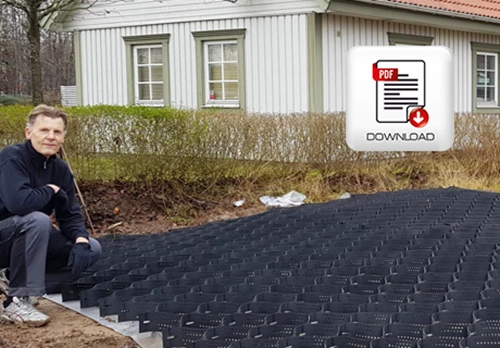Soil Stabilization PROBLEM
Problem: Poor load-bearing soils pose a significant problem for transportation and construction needs in the Humanitarian Sector. Soil stabilization for unpaved areas, such as access roads, maintenance roads, parking lots, subgrade improvement, etc can be highly vulnerable to near-surface shear failure and rutting, especially in moist conditions or areas with higher expected loads. For road base stabilization typically, engineers bridge over weak soils with rigid structures such as thick, reinforced concrete for roads and highways. However, such techniques are prohibitively expensive and inordinately difficult to install. The poorer the quality of the sub-base and the heavier the expected loads, the greater the amount and better the quality of support required. From an environmental viewpoint, hard-pavement, as an impervious surface, is far more harmful to the environment than a porous surface. If the environment is a primary concern for the construction application, then a previous solution should be considered.
Soil Stabilization SOLUTION
Roadgrid & Soil Stabilization provides a direct, cost-effective solution. The high-strength cell walls maintain the shape and integrity of the structure, allowing for heavy equivalent axle loads without fear of lateral movement of the fill material. The cellular design of Roadgrid & Soil Stabilization also distributes the loads to an extended area, thus reducing the stress to the grid itself as well as to the sub-grade below. The thickness of the overall framework and sub-base can be decreased with equivalent or greater structural integrity. In most cases, the Roadgrid & Soil Stabilization solution can reduce a typical cross-section to 1/3 or the original design. This can also create pavement reduction due to the higher base structural value.
Using Roadgrid & Soil Stabilization for road base reinforcement also allows for lower quality aggregates found locally, eliminating the need to import better or more material. Compact sections of Roadgrid & Soil Stabilization filled with sandy soil can thus replace truckloads of crushed stone or other granular fill or even asphalt or concrete. The Roadgrid & Soil Stabilization can also be used as the form for a geocell reinforced concrete.
If porous pavement for natural groundwater drainage is desired, Roadgrid & Soil Stabilization allows for the use of permeable aggregates while maintaining sufficient weight-bearing capacity. All of these benefits can be of great use for intermodal yards, port yard stabilization, load transfer platforms, container storage yards, oil, and gas rig pads, haul roads, wind energy roads, and pipe yards. The Roadgrid & Soil Stabilization system can also be used for a reinforced porous layer for tree root protection and porous paver base stabilization. For certain applications, the Roadgrid & Soil Stabilization can be used in conjunction with other geosynthetic materials such as geotextiles, biaxial grids, triaxial grids, geogrids, and geomembrane liners.
Call or email IP-Group with your specific project needs and challenges. The IP-Group Team is ready to help develop the right solution for your project.
From Challanges to Soultion
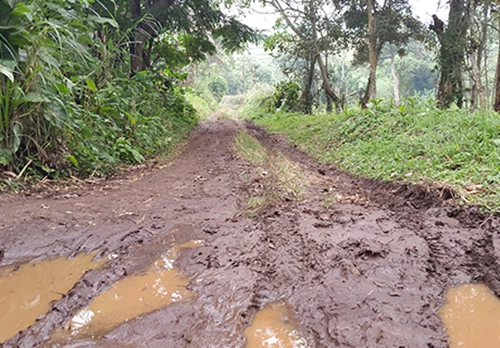
Bad Road Conditions
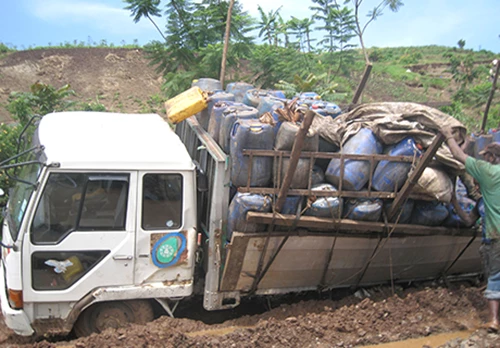
Every day problems
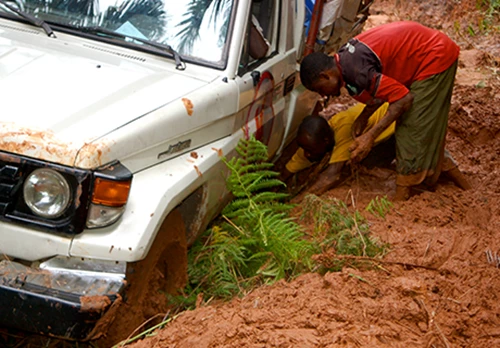
Impassable roads
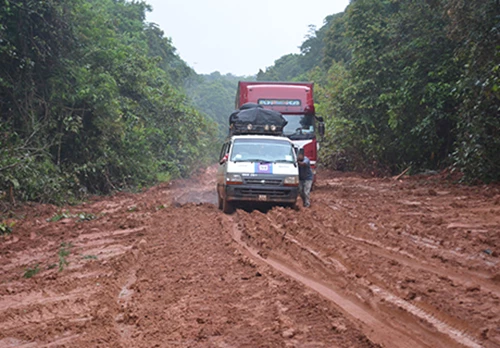
Hazardous conditions. Lost productivity
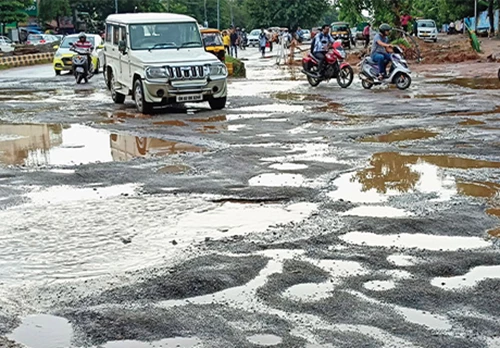
Poor load bearing
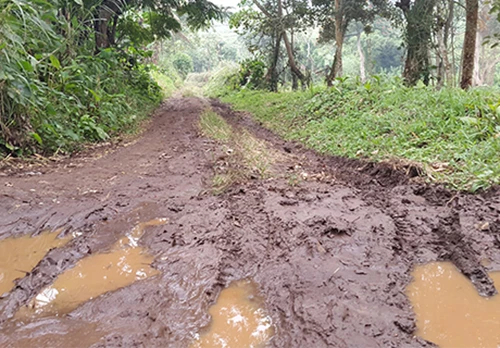
The problem is usually saturated soils
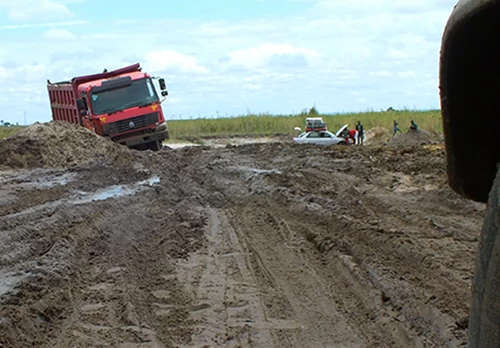
A significant problem for transportation
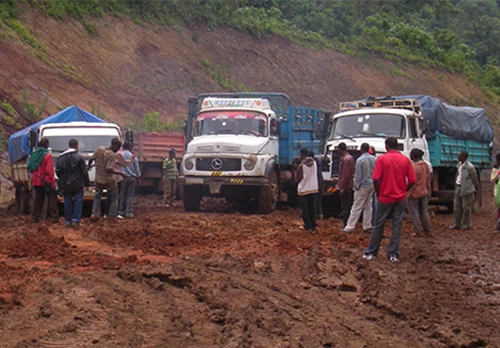
Big challenges
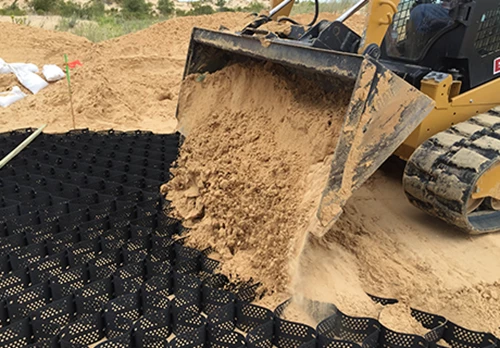
Roadgrid % Soil Stabilisation cost-effective solution
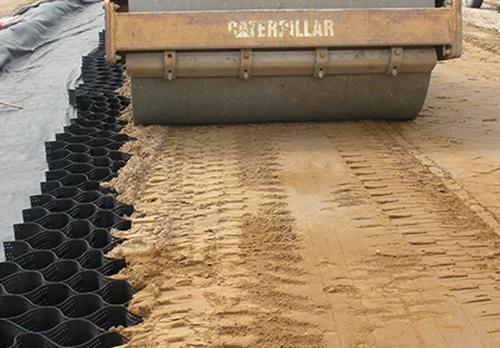
The cell walls resist lateral movement
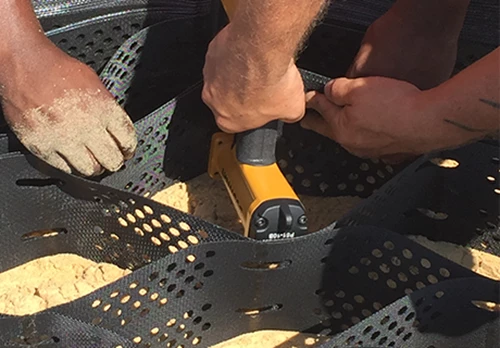
Three-dimensional cellular confinement system
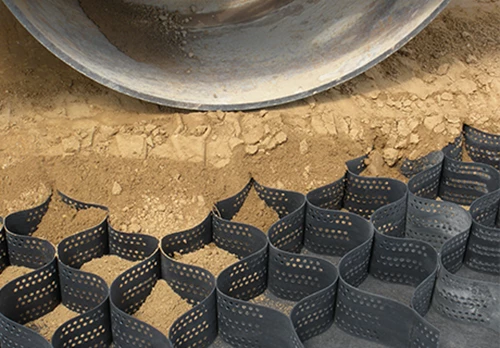
Immediate access to heavy vehicles and machinery
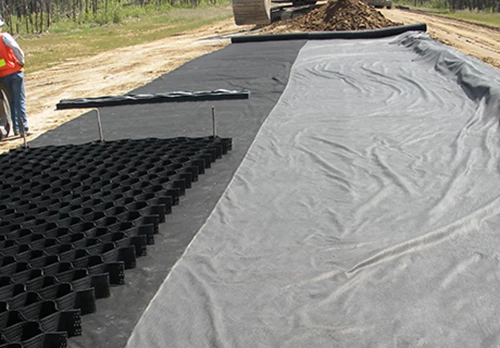
Permeable low maintenance surface
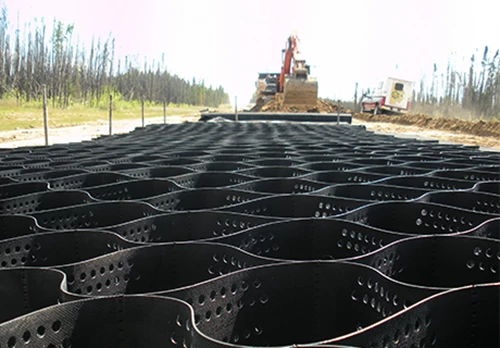
Long term solution
Project Halmstad, Sweden
From Challanges to Solution
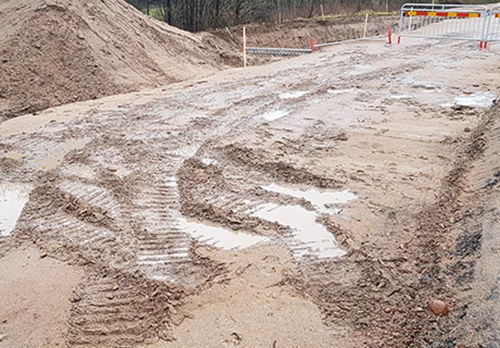
Soil and muddy surface
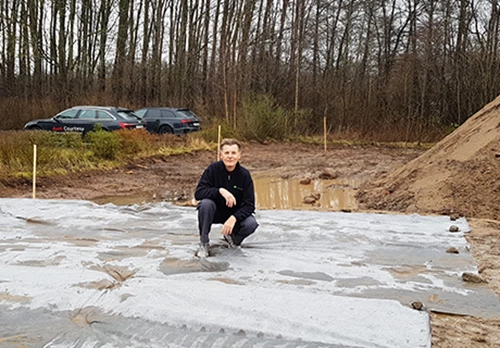
Geotextile on top of surface
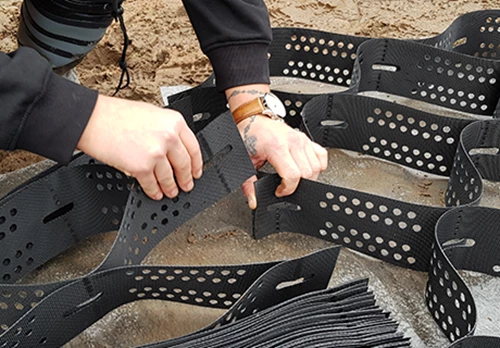
Staple together to the desired length
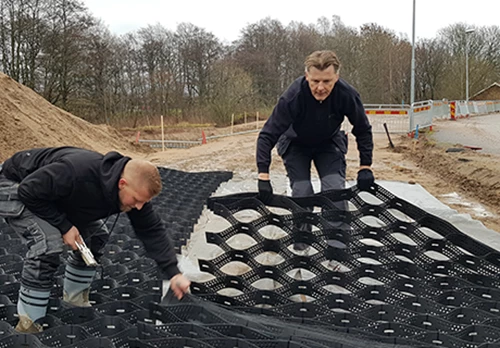
Stretch out in length
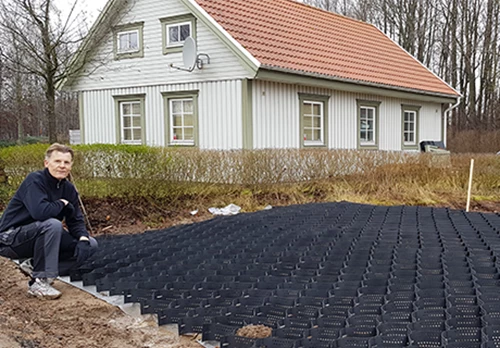
Ready to fill the cells
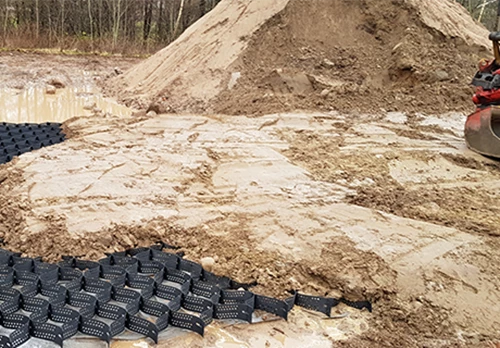
Mud and sand soil filled in cells
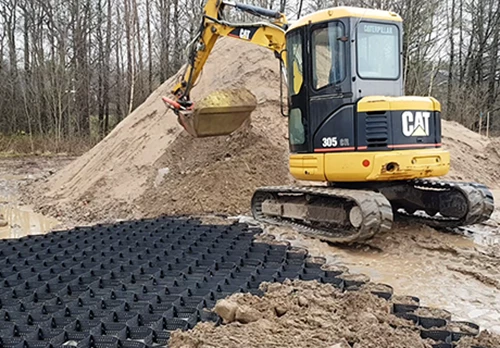
Starting filling with excavator
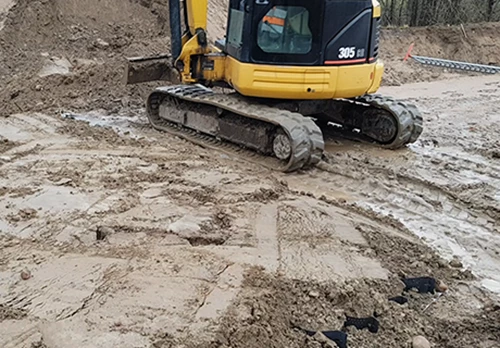
Filled up with Approx 100 mm over cells
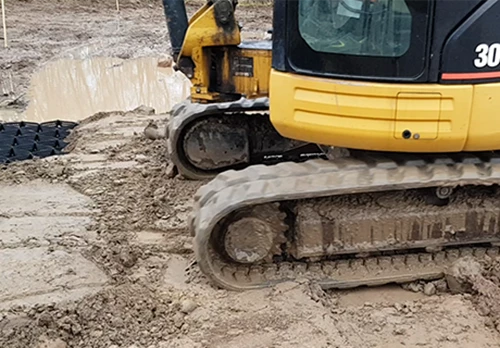
Excavator on Roadgrid & Soil Stabilization
Slope Erosion CONTROL
Problem: Soil erosion particles are susceptible to being detached and carried away with concentrated runoff streams, forming rills and gullies that grow with time. The slope integrity is diminished, eroding the slope face and becoming a larger environmental and safety issue. Slopes steeper than the natural angle of repose for the slope materials require additional slope erosion control measures, as are slopes subject to more severe hydraulic stresses.
Solution: Roadgrid & Soil Stabilization effectively holds slope cover materials in place, thus reducing the potential for slope erosion. Cell walls check the runoff streams associated with rainfall, keeping the overall system intact. The infill material also rests within individual cells, allowing for much higher angles of repose. The Roadgrid & Soil Stabilization geocells can be used in slopes as steep as 70° and secured in place by our CellClip twist anchors or our tendon system. Our Roadgrid & Soil Stabilization is the perfect complement to erosion control blankets and hydroseeding.
The Cost-Effective Solution
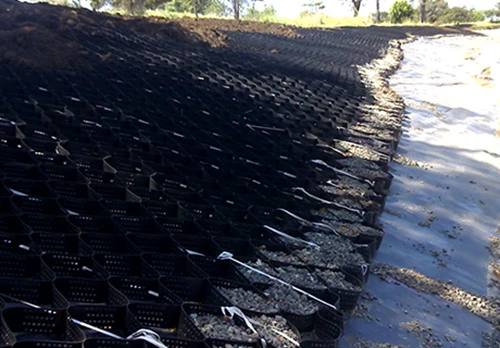
Roadgrid & Soil Stabilization effectively holds slope cover materials in place
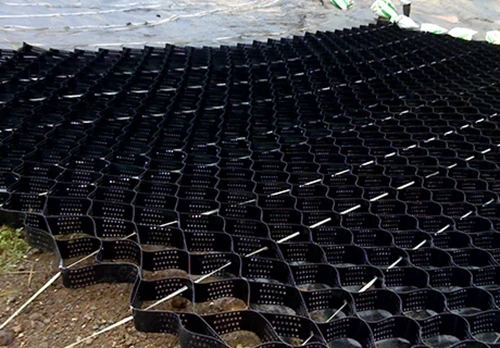
The infill material rests within individual cells
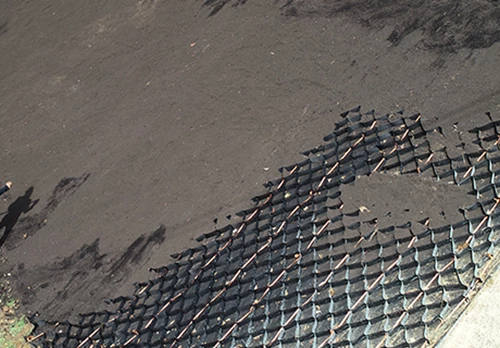
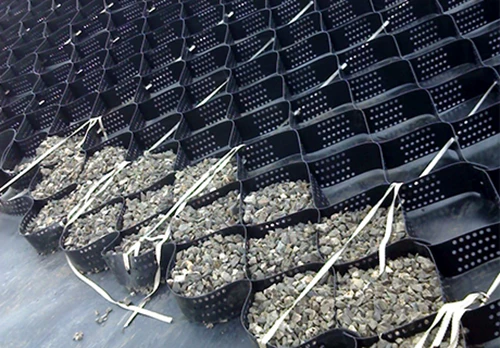
The cells can be used in slopes as steep as 70°
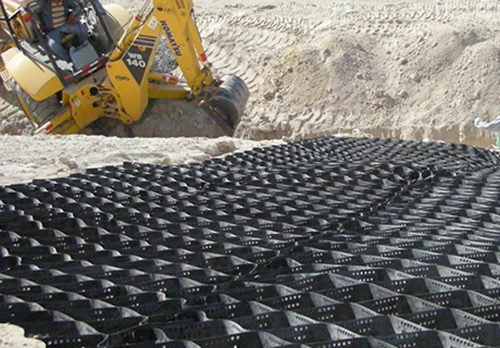
The perfect complement to erosion control blankets
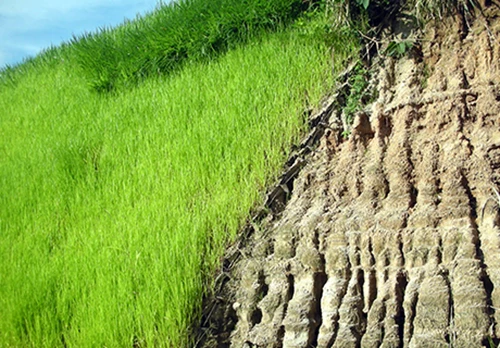
Soil Stabilization filled with soil promotes vegetation
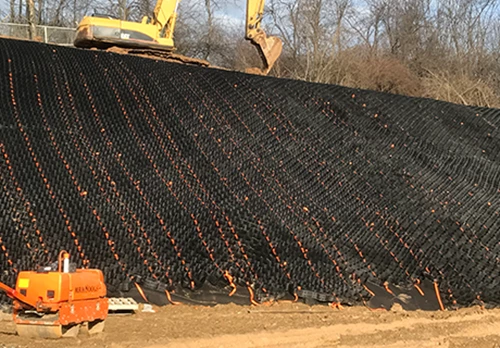
Cell walls check the runoff streams associated with rainfall
CONTACT FORM & INFO
I AM AT YOUR SERVICE
Dear Customer. Please fill in the form and I will do my utmost to provide you with the best solution. Thank you so much in advance
IP-Group AS
Geir Vidar Persen
Sales Director
Cell phone: +47 960 49 556

.png)





